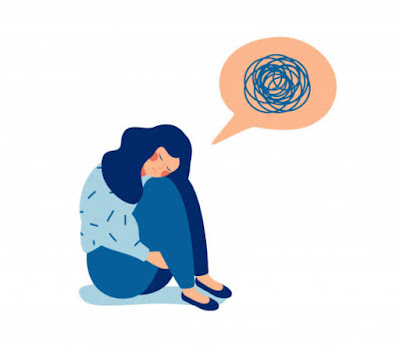Almost of half of us will from Depression at some point in our lives but the condition remains badly misunderstood and therefore often poorly treated at the Heart of our collective difficulty with depression is a confusion about what it actually is and in particular how it can be distinguished from a state that all of us know a very and with which it has a distracting number of similarities namely sadness it’s because unwittingly tend to apply to cases of depression a number of assumptions drawn from and better suited to an understanding of sadness that we end up suffering from more than we should but there are on the surface some notable similarities between those who are sad and those who are depressed both groups cry both withdraw from the World both complain of listlessness and a sense of alienation from their normal lives but there is categorical difference between depression and sadness the sad person knows what they are sad about the depressed person doesn’t sad people can without difficulty tell us what is troubling them I’m sad that my grandmother has died or that i lost my job or that my friends are being unkind to me and it might sound strange this is precisely what the depressed person is not capable of doing they may tearful and at very low ebb but they can’t conclusively put a finger on what has drained life of meaning for them they simply say it has no meaning.
Do you feel like?
Do you sometimes feel sad or have the blues? This is normal and a part of every day living. It's also normal to feel depressed after a loved one dies or after a serious illness diagnosis. We may cry, have trouble sleeping or lose our appetite, but what's not normal is to feel this way for long periods of time. Depression is a mood disorder that effects how you feel and think and how you manage daily activities. Depression can happen at any time in your life. Major depression can effect more than your mood; for example, you might be sleeping a lot or not sleeping enough. You could lose weight or gain weight and generally lose interest in your life. You may even have thoughts about your own death. Sometimes depression happens when a person has other serious conditions like cancer, heart disease or PTSD. Also a person may be abusing drugs or alcohol or withdrawing from them and could also be suffering from depression.
 |
It's important that Veterans seen at VA facilities are screened every year for depression. Depression can be difficult to diagnose, especially when a person has a tough time talking about their feelings. It can be a sensitive topic to bring up with a healthcare provider. However sometimes a spouse or partner will mention their loved one is having trouble sleeping and is grouchy all the time. With these symptoms there's often a problem with depression going on too. Some other signs and symptoms of depression may include feeling anxious or having an empty mood that won't go away, feeling hopeless or worthless, losing interest in hobbies or activities you once enjoyed, feeling aches or pains that don't have a clear cause even after they've been treated.
How to deal with it?
The good news is that depression can be treated successfully so you can return to feeling more like yourself. If you are a Veteran enrolled in VA healthcare and you or your loved one suspects you may have depression contact your VA primary care provider, a patient aligned care team member or a mental health professional for help. If you are diagnosed with depression your treatment may include medication and psychotherapy, which is also called cognitive behaviour therapy or a combination of both. Psychotherapy helps by teaching you new ways of thinking and behaving and changing habits that can add to your depression. People usually do best when they receive both kinds of treatment. Gradually with proper treatment you'll start to feel better, during this time continue to do things you enjoy but go easy on yourself. Be active and be with other people, get good rest, eat at regular times, ask for help from your family, friends and your healthcare team. Put off making any major life decisions until you feel better. Remember don't use alcohol or drugs that are not prescribed to you because they can make your depression worse and harder to treat.
If you are concerned about a loved one who is talking about suicide or death, always take them seriously. If they refuse to get help, get help for them any way. Call the Veterans Crisis Line; it's a confidential toll free hotline, online chat or text. It's available 24 hours a day, 7 days a week, 365 days a year. Veterans or their loved ones can call 1-800-273-8255 and press 1 or text a message to 838255 to get immediate help and support. Remember depression can be treated if you think you have depression seek help, the VA wants you to have the best care possible so you can get back to feeling like yourself again.


If you have any doubts, or suggestions please let me know. Keep visiting. Thank you ConversionConversion EmoticonEmoticon